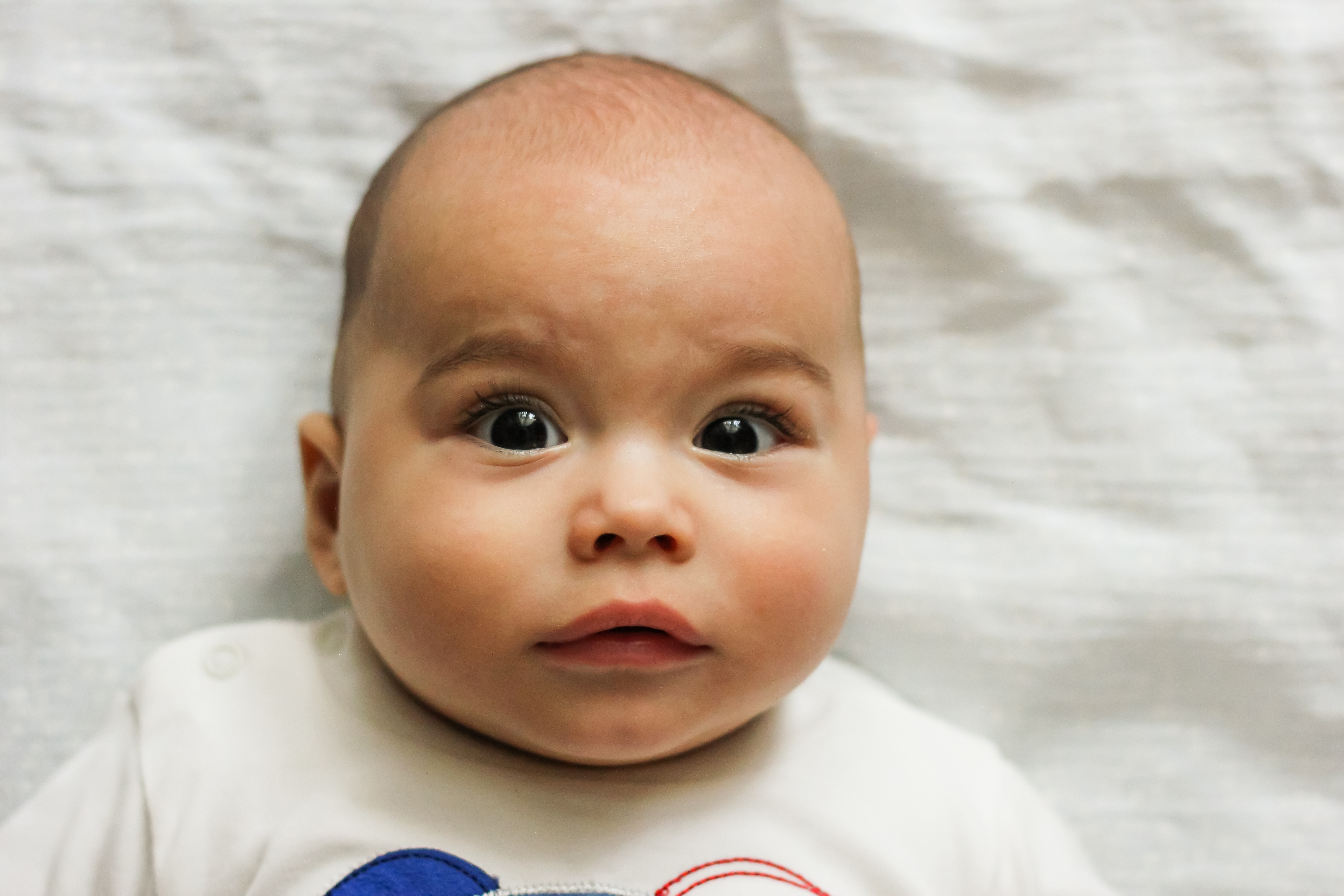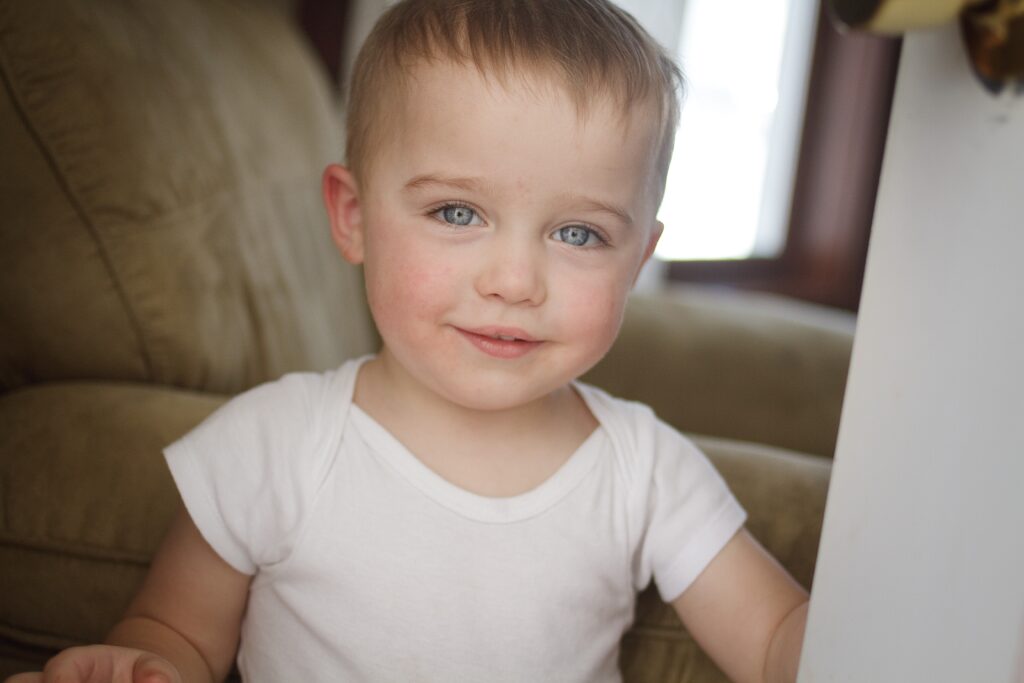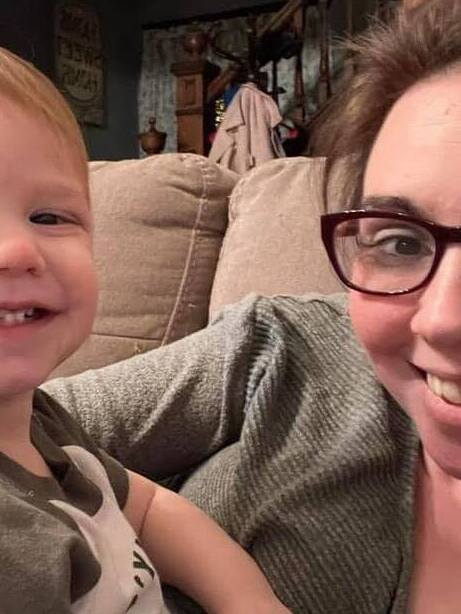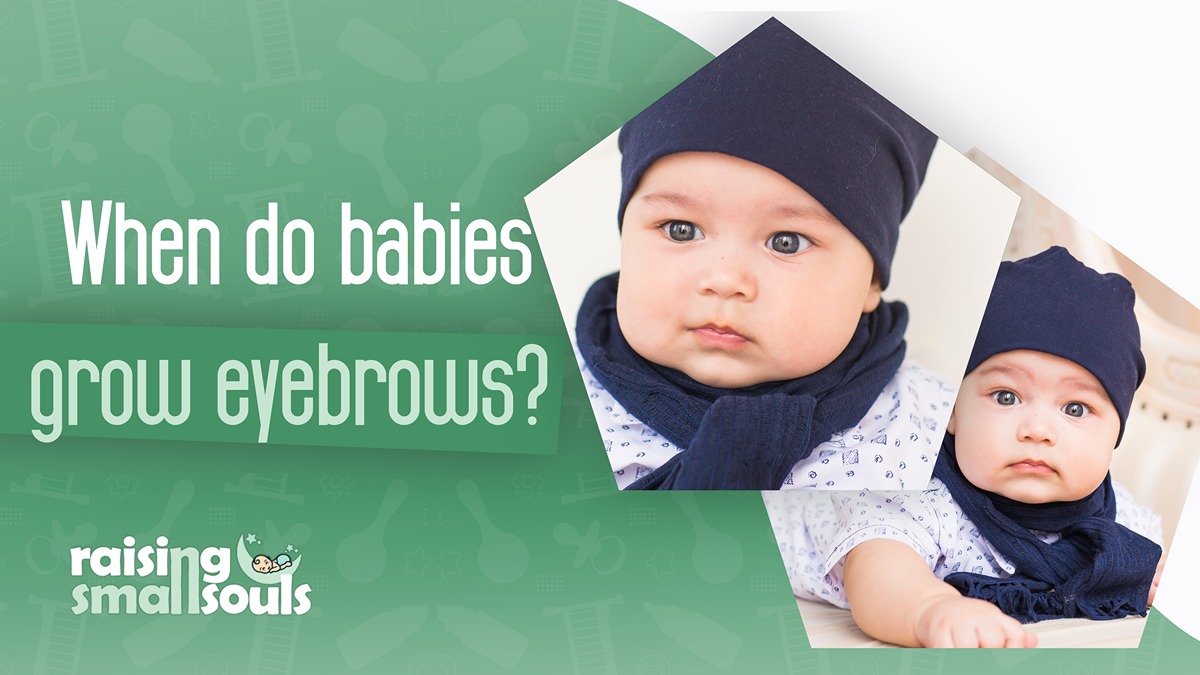When my first nephew was born I was surprised to see that he had no eyebrows. I’ve seen my friend’s babies after they were born and all of them had little eyebrows on their cute faces so I got to thinking about when do babies grow eyebrows.
Main Points
- Eyebrows develop in the womb around the 22nd week of pregnancy.
- All babies are different and have a different amount of hair when they are born.
- The color and thickness of the hair will depend on the baby’s genes.
- All babies have eyebrows, but some are too tiny and light to be spotted easily.
When do the baby’s eyebrows start to come in?
Babies develop most from the utero stage till their second birthday. Around the 21st week of pregnancy is when your baby is covered by a protective layer of hair called lanugo. This helps protect the baby’s skin and will keep the baby warm.
After you get into the 22nd week of your pregnancy the baby will start to grow eyelashes and eyebrows. How visible will these will be depending on the chromosomes of both parents?
The lanugo hair usually sheds between the 33rd and the 36th week of pregnancy. This is why some premature babies can be born with lanugo hair on their bodies.
Are all babies born without eyebrows?

After being around so many babies in my life I’ve come to find out that all babies are different. Some are born with thick dark hair and eyebrows, some are blond with no eyebrows, some are a mix of the two, and so on.
Most probably even blond babies have eyebrows, but they are so tiny and light that is hard for you to see them. If you gently move your finger above the baby’s eyes, you’ll feel little tiny hairs brushing on your fingerprints.
My baby doesn’t have eyebrows
This is no cause for concern. As I mentioned the eyebrows are developed in the 22nd week of pregnancy, but depending on the parent’s genetics they might not be visible yet. Some babies are born with a full head of hair, and some don’t even have any eyelashes yet. Both cases are normal and common.
If the baby doesn’t have any eyebrows some parents tend to look for a quick way to help speed up the process. There are ways you can stimulate eyebrow growth, but you need to ask yourself if is it really necessary. If the parents themselves have very light features, then it should be no surprise that the baby has very light, almost invisible eyebrows.
What Helps With Eyebrow Growth?

Coconut oil
If you are eager to help your baby grow thicker eyebrows, you can try putting coconut oil above their eyes. Coconut oil is good for repairing skin and it is said that it stimulates hair growth. It is safe to use on your baby’s sensitive skin and if nothing else it will help strengthen and soften it. Make sure you use high-quality virgin coconut oil.
Aloe Vera
Aloe Vera is also said to improve hair growth. You can put it on the eyebrow area and leave it on for an hour after washing it. The best thing will be to use aloe pulp and try to avoid commercial aloe gels that can be mixed with harmful chemicals for your baby’s delicate skin. Aloe Vera contains vitamins A, B12, and E which help strengthen hair follicles and improve overall hair growth.
Breast Milk
The mother’s milk is a super food for the baby. It contains healthy fats and proteins that are essential for the baby’s development. Breast milk also stimulates the growth of hair among many other things.
Nutrition
A healthy diet is very important to the overall growth and development of your baby. As long as your baby is fed, cleaned, and safe, their hair will start to grow normally very soon. If you are breastfeeding it is also very important that you take care of your health by eating nutritious food and prioritizing movement and exercise.
Other commercial products
I am strongly against using lotions for hair growth on your baby. They often contain harsh chemicals that can cause a rash. Not to mention they should be applied on the eyebrow area and this can cause leaking into the baby’s eyes.
Baby’s Eyebrows Are Changing Color

A baby’s hair will probably go through several changes, mostly in shade or color. Your baby can be born with blonde hair and in a few months, it can turn red or even dark brown.
The eyebrows are no exception. Don’t be surprised if your baby’s eyebrows go from, blonde, to red, to brown within a few months. This is completely normal and expected.
If you are wondering how your baby’s final eyebrow color will be, you’ll find out somewhere after the second birthday. This is usually when the color of hair stabilizes and stays one shade.
Will their eyebrows fall out?
Most babies lose the hair they are born with within 6 months. As long as your baby is healthy, well-fed, and happy you have nothing to worry about if you see hair starting to fall out.
Actually, this can be a good thing. If your baby loses its thin light hair that means that now there is room for the thicker darker hair to take over.
Conclusion
Newborns are a handful. Between worrying about when they should eat, whether they are warm, whether they are hot, do they need a change, and so on, when do babies’ eyebrows grow should be the last thing on your mind.
Every baby is different, some have darker eyebrows, and some have very light and delicate eyebrows. It doesn’t matter. After the second birthday, the hair on your baby should stop changing shade so until then there is no way to know exactly how well your baby’s eyebrows will turn out.
If you’ve genuine concerns about hair growth or any abnormality, I advise you to call your pediatrician before you do anything to take matters into your own hands.

When it comes to raising children, there’s a lot to learn! I’m here to share everything i learnt along the way.

